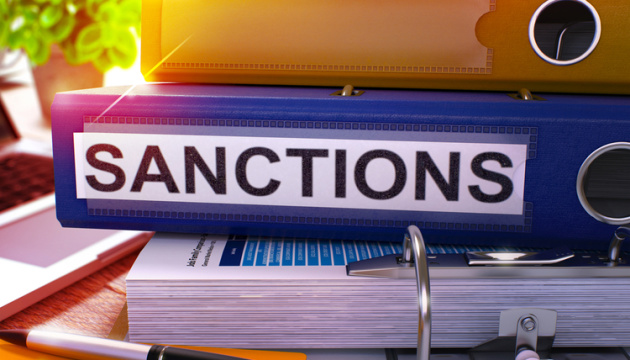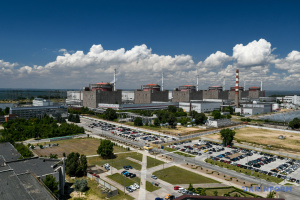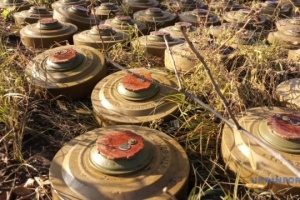
Russian economy going south
The invaders' currency followed the "Russian ship" and fell to a historic low. Currently, every country is imposing economic sanctions on the aggressor country, just like wolf hunters surround the beasts with red flags. Shares and other securities are not traded because their price drops to almost zero. Countries refuse to buy Russian gas and oil. Airlines cancel air communication and recall aircraft of Russian companies operating there on the terms of lease. The Bosphorus and the Dardanelles, as well as the ports of Great Britain and Canada, are closed for Russian ships. Giant transnational companies close their businesses in Russia and refuse to supply their products, and investment funds get rid of Russian assets. International payment systems revoke banks' licenses. The process of the self-destruction of Russia continues… A few more weeks, and it will be behind the Iron Curtain and in an economic vacuum. Russians, hurry to buy toilet paper. Or stop Putin.
Russian finance system is in the red and dying
Russia attacked Ukraine on the night of Thursday, on 24 February, probably hoping to perform a blitzkrieg to achieve a complete victory before the end of the weekend. However, Ukraine resisted. And the world has united around us from the political and economic viewpoints, and the Russian economy immediately went downhill.
A package of devastating sanctions imposed by the United States and Europe collapsed stock and currency markets. Russia has not yet been completely disconnected from SWIFT global payment system, but instead the United States has taken no less effective measures, having banned the US citizens from conducting any transactions involving the Central Bank of the Russian Federation, the National Wealth Fund and the Russian Ministry of Finance.
"We have taken such measures to disrupt Russia's ability to use its international reserves to offset the impact of our sanctions, and to prevent Russia from gaining access to its Wealth Fund in order to use it in the war against Ukraine," the White House said.
So, strategically, Biden decided not just to exclude Russia from the international trade. Most importantly, he decided to ruin a foreign exchange reserve, the financial cushion accumulated by Putin, which before the invasion of Ukraine totalled USD 640 billion.
It is expected that due to global sanctions, Putin's currency cushion will rapidly shrink to USD 145 billion.
To save the banking system from collapse, the Central Bank of the Russian Federation immediately began to pour trillions into it, which devalued the rouble right in front of our eyes. The Ministry of Finance and the Bank of Russia even raised the rate of mandatory sale of foreign exchange earnings to 80% to stop the catastrophic collapse of the rouble. However, on Monday in some Russian banks the dollar could be bought for 150 roubles, which is more than twice the price before the aggression against Ukraine. In the Forex market on Tuesday, on 1 March, the exchange rate was 117 roubles per dollar.
On Wednesday, trading at the Moscow Stock Exchange began with the strengthening of the Russian currency. However, the trend changed quickly and the rouble went to ... you know where. The trading session ended at the exchange rate of 108.73 roubles per US dollar and 121.04 per euro.
At the same time, the average sell price of US dollars in banks is 120-140 roubles, there are offers for 150-160.
According to experts the picture of 200 roubles per US dollar will be quite real for Russians in the future. Stock exchange rate and official exchange rate will approach such figures. This may be a consequence of the introduction of tougher sanctions on the Kremlin by the civilized world, in particular, the complete disconnection of Russia from SWIFT and the freezing of the currency part of Russia's gold and foreign currency reserves.
As was reported, so far Europe and the United States are not going to do this: SWIFT will be unavailable only to some Russian banks, which are nevertheless systemic ones. Like, they want to give Putin a chance to avoid completely driving the "beast" into a corner. However in the case of the Russian dictator, the beast has all the symptoms of rabies without being cornered. Therefore, Ukraine insists not on half-steps, but on the complete disconnection of the aggressor country from the international interbank information transfer and payment systems.
Anyway, we are grateful to our partners for what we have: the European Union disconnects seven Russian banks from the SWIFT system and bans citizens and companies from moving euro banknotes to Russia. The sanctions affected Otkritie bank, Novikombank, Promsvyazbank, Bank Rossiya, Sovcombank, VNESHECONOMBANK (VEB) and VTB BANK. The ban will take effect on the tenth day after its publication in the Official Journal of the European Union (i.e., on 12 March). It will also apply to any legal entity or organization registered in Russia where these banks own 50% or more of property rights.
Disconnection from SWIFT means that banks will not be able to make international payments, money transfers from or to Russia (in particular, from migrant workers). This is expected to hit Russian industry the hardest. Unfortunately, the Europeans did not agree on the disconnection from SWIFT of Sberbank, the main credit institution of Russia. However after the value of its shares on Western stock exchanges fell by 99.9%, and leading partners began to refuse to cooperate ("besieged the demon"), the bank itself announced its withdrawal from the European market.
In addition to that, the European Union also prohibits the sale, supply, transfer or export of euro banknotes to Russia or to anyone for use in Russia.
Experts note that the sanctions returned Russia's monetary policy to the early 1990s. Russia is expected to have inflation of 30-40%, unemployment and a significant drop in income.
Already after the first sanctions, the Central Bank of the Russian Federation raised the key rate more than twice: from 9.5% to a record 20% per annum. The new value became an absolute record in the history of the aggressor country. Until now, 17% was considered to be the maximum. At this level the key rate was from late 2014 to early 2015.
Since, according to the Bank of Russia, the total debt load of Russian citizens is 24 trillion roubles, 43 million people have loan debts, the level of debt load of citizens exceeds 12%, after raising the discount rate and the corresponding increase in bank loans, it will be harder for Russians to refinance old debts.
For example, largest Russian banks Sberbank and VTB have sharply raised rates on consumer and mortgage loans from 13-22% to 22-30% per annum.
Visa and Mastercard have disconnected sanctioned Russian banks from their networks. Their bank cards will not work abroad and when paying in foreign online stores, but will still continue to operate in Russia. On 2 March, US payment system American Express imposed the same restrictions on Russia.
They had to stop operations on the stock market completely. The Russian regulator prohibited professional participants to sell domestic securities on the Moscow Stock Exchange to prevent a catastrophic decline in their value due to their selling by foreigners. However, it could not save the day. According to Bloomberg, the value of shares of Russia's largest companies traded on the London Stock Exchange dropped by 98%. The capitalization of the largest companies (including Gazprom, Sberbank, Rosneft) dropped in total by USD 570 billion. In particular, the shares of Gazprom and Lukoil lost 98% in price, shares if Severstal metallurgical company lost almost 100%, shares of Rosneft lost 65% of their price.
In addition to that, according to various estimates, from USD 300 to USD 400 billion are currently frozen due to sanctions by the United States and its partners against the Central Bank of Russia. It will not be able to use them to stabilize the rouble.
The first blow on Nord Stream 2. Should Nord Stream 1 prepare?
Prime Minister of the Federal State of Mecklenburg-Vorpommern Manuela Schweiz (SPD), has announced the dissolution of the MV Climate and Environment Foundation, established up in 2021 with Nord Stream 2 AG. It was opened to support the construction of the Nord Stream-2 gas pipeline.
On March 1, Nord Stream 2 AG, the operator of the Nord Stream-2 gas pipeline, declared itself insolvent.
Silvia Talman-Gut, an adviser to the government of the Swiss canton of Zug, where Nord Stream 2 AG is registered, said: "The company had to go bankrupt and all 106 employees were fired."
Warsaw, meanwhile, is urging neighbours to go further: Prime Minister of Poland Mateusz Morawiecki during a visit to Berlin called on the German leadership to stop pumping gas through Nord Stream 1. "We must stop Nord Streams, first and second, and finally become independent of Russian gas, cut off Russia's financial institutions from capital markets, confiscate oligarchs' assets and separate Russia from SWIFT. We should consider all possible options. We are responsible for trust in the EU, which is not merely an economic bloc, but a bloc that upholds certain values. We are all historically responsible for how we react now," Morawiecki said.
Warsaw also calls on the EU to stop importing Russian coal. According to Mateusz Morawiecki, Poland itself is ready to resort to the embargo at any moment, without waiting for the decision of the European Union. At the same time, the Prime Minister of Poland added that the embargo is within the competence of the European Commission. That is why Warsaw wants to hear assurances from Brussels that it will not be punished for such a step.
Planes follow ships: the sky and the sea are closed
Immediately after the aggression, eight European countries closed their airspace for Russian aircraft. As of 28 February, there were 32 such countries. On 1 March, Joe Biden announced the closure of US airspace for Russian aircraft. "I declare that we are joining the allies and closing US airspace to all Russian flights," the US President said, addressing the House of Representatives and the US Senate in his annual State of the Union address. In total, Russian civil aviation can no longer fly in the airspace of almost four dozen countries.
At the same time, the world's airlines are changing routes to bypass the territory of Russia and not pay it for the use of air corridors and for dispatch services. For example, on 1 March, United Airlines and United Parcel Service logistics company announced that they were suspending flights in Russian airspace by joining other major US airlines, Delta Air Lines and American Airlines. Putin decided to "punish" European airlines himself by banning them from using Russian airspace.
At the same time, all aircraft of Airbus and Boeing will leave Russia, as they are mostly used on lease terms and belong to Irish companies. Supply of any spare parts to them and their maintenance is prohibited. It is also impossible to insure the aircraft for use by carriers from Russia. This affects 64% of all aircraft used by Russian airlines, and 36% of helicopters.
Ireland is now demanding from Russian Pobeda airline to return 10 Boeing 737 passenger planes. One Pobeda plane was detained in Istanbul.
An Aeroflot plane flying from Moscow to New York was turned mid-air above Ireland.
Boeing closed access of Russian airlines to its technical documentation. CFM, the manufacturer of aircraft engines, began to notify Russian airlines of the termination of cooperation, including in terms of supply, maintenance and technical support.
The Russian aircraft industry suffered a serious blow as well, since import of components for machinery. Without them, no Russian aircraft will be built or take off.
Britain and Canada were the first to close their ports to Russian ships. Turkey warned all foreign countries about the prohibition for warships to pass through the Bosphorus and Dardanelles, in accordance with the provisions of the Montreux Convention.
Ivan, there is no vodka here
What is most painful for the Putin regime is that the European Parliament has proposed restricting the purchase of Russian oil and gas, completely closing access to the EU financial market, closing all ports and banning the sale of technology goods to the EU. The European Parliament also passed a resolution calling for tougher sanctions against Russia and Belarus to "weaken Russia's economy and industrial base, including its military-industrial complex."
Daimler Truck suspends cooperation with KamAZ. Credit Suisse, Societe Generale, ING Groep NV, Radobank refuse to lend and finance agreements for the supply of goods from Russia.
AP Moller-Maersk A/S, one of the world's largest transport companies, which controls 17% of the container fleet, plans to suspend orders to and from Russia.
Intel and AMD, ABB and Schneider Electric are suspending supplies to Russia.
The Russians are advised to quickly reserve information stored in foreign cloud infrastructure, to which they will no longer have access.
ABB and Schneider Electric have suspended supplies to Russia.
Moscow transport companies have warned about the difficulty of paying for travel by card, through Apple Pay, Google Pay, Samsung Pay and other payment systems and apps.
Russian banks inform customers that their cards are no longer working abroad.
Banks abruptly suspend payments on government contracts.
Yandex stopped accepting payments via Google Pay.
Russian importers and distributors of alcohol completely suspend supplies to Russia due to a sharp increase in the exchange rate. Russian alcohol products are removed from the shelves in stores in the EU, USA, UK, Canada and other Western countries. Ukrainian Nemiroff revoked the license to manufacture its products in Russia.
General Motors and Harley-Davidson have refused from supplies to Russia. Earlier, the suspension of supply was announced by concerns, which include Volkswagen, Skoda, Audi, Porsche, Volvo, Daimler Truck and other brands.
Exxon Mobil recalls its specialists from Russian oil and gas projects.
British Jaguar Land rover announced the cessation of shipments to Russia. Experts have warned Russians about rising prices even for used cars.
In short, just the list of sanctions and companies that resort to them in order to support us in the fight against the aggressor, takes several pages. You can get acquainted with it in more detail, for example, on the telegram channel of the adviser to the Minister of Internal Affairs Anton Herashchenko.
And, as they say, it's going to be a long day.
Does the Kremlin leader feel well?
Meanwhile, Putin's close circles continue to reassure their boss, and most importantly, the Russian people that, say, everything is fine in the country. But all the "problems" with the currency, the mass cancellation of flights, as a result of which Tagil metallurgists cannot soak up in the sun (in places where they were still allowed) are caused by a new wave of coronavirus. And the main problem that the Russian government is worried about now is that the world sports community for some reason suddenly "rebelled" against Russian doping eaters. "We were ready for sanctions, but we did not expect that they would affect athletes, representatives of the culture, sector, actors, journalists," Russian Foreign Minister Sergei Lavrov said in an interview to Al Jazeera.
However, the vast majority of Russians believe it as always. Just as they believe fairy tales about military training in Belarus, where their sons are staying suspiciously for a long time (many of them have already died), and about the surgical "liberation" special operation in Ukraine, and about the lack of grounds for shocks in the economy ("we will survive this inconvenience").
Both the Russian media and social media are full of such pathos. Obvious bots and quite real Russians, judging by their profiles, are convinced that it is not against them the world imposed sanctions: it hurt itself instead. Because it will die without Mother Russia, without its hydrocarbons, without its gold ("We produce 300 kilograms per year!"), grain, metal, and most importantly, without the truth from "Russia Today.
And we, the Russians, will make money on the situation! Look, the gas price in Europe is already USD 2,200 per thousand cubic meters! And if they don't buy in Europe, we will sell to China. And oil in addition to that... By the way, China is also in no hurry to buy Russian oil.
For the sake of fairness, we must admit that both Europe and the world's companies are really suffering financial losses because of the imposition of sanctions against the aggressor state. However, what those millions or even billions of dollars or euros compared to the lives of Ukrainians who are now protecting Europe and the world from Kremlin's evil? Fortunately, the world begins to understand this fact more and more and is ready to suffer losses - for the sake of the already mentioned European and world civilization values.
Energy is still the Achilles' heel of Europeans in their sanctions confrontation with Russia. First of all, it is the area of gas supply. Therefore, unfortunately, tougher sanctions against the Kremlin in this area are not yet possible. It is a pity that our country, which, in particular, continues the transit of Russian gas to Europe in order not to leave Europeans without energy resources, and secondly, to earn money to support the country's livelihood and to fight the aggressor, cannot impose tougher sanctions as well. These are the features of the global economy of the XXI century.
However, it is already clear that the events of the end of February 2022 will be a catalyst for the process of ridding by Europe of the dependence on Russia in the energy sector. Just like for us, the first phase of Russian aggression against our country became such catalyst in the period from 2014 to 2015. Unfortunately, we did not manage to get rid of these dependencies completely (except for the gas one, and from now on, hopefully, the electricity one). Let's be realistic. Obviously, Europeans will not succeed completely, at least in the near future. However, Russia's hegemony in the European gas market seems to be over forever. Even Germany, which until recently believed in the "economic" nature of Gazprom's Nord Streams, has already announced plans to replace Russian fuel with shale gas from the United States.
Oleksiy Kushch, the expert at the Growford Institute believes that other buyers of Russian energy resources will gradually find sources to substitute them.
"Unfortunately, it is impossible to count on a quick effect. But it will not be far off. In the gas sector, Russia will face an almost complete loss of the European market. It will not happen immediately It will take a few years.
At the initial stage, there will be a sharp reduction in gas consumption in Europe.
At the second stage, there will be the replacement of Russian gas from other sources," the economist said. He predicts a crisis in the gas industry in the Russian Federation: there will be no investment resources to develop new gas fields, to carry out technical modernization. The money will be enough only to maintain the industry, not to replenish reserves, which will be rapidly depleted.
However, they do not believe in such predictions in Russia. They say that if "cold and hungry" Europe does not bow to Putin, they will take a different path: they will flood Russian borders with Russian oil and gas. In this regard, the Russian citizen was probably very pleased with the information about the start of design and survey work for the construction of Soyuz Vostok gas pipeline in Mongolia. It should be an extension of Power of Siberia 2 gas pipeline and will supply up to 50 billion cubic meters of Russian gas to China each year. Russia currently exports about the same amount to Germany.
However, several month will pass before the facility is put into operation (and, hopefully, it will take more than one year). What will Russia do with the surplus gas if European consumers refuse to buy it? It can inject some gas into underground storage facilities, some wells will have to be mothballed. All that means in addition to the loss of income, a great economic and social stress for the regions that live off gas production.
You can add the pricing issue here. Currently, China buys Russian gas for about USD 170 per thousand cubic meters. While for European consumers it costs at least USD 550 under long-term contracts, and at least 1.5-2 times more at the spot market (even if we do not take into account the current anomalous cost of natural gas). That is, supplying 100 billion cubic meters of gas to China (50 billion cubic metres through existing or almost completed capacities and the same amount if Power of Siberia-2 - Soyuz Vostok project is implemented) Russia will be able to earn USD 17 billion instead of USD 55-70 billion for supplying the same amount of fuel to Europe.
At the same time, the Kremlin can hardly hope to agree with Beijing on a price increase. After all, China plays a strong position in the relations between Russia and China. Especially in the current circumstances, when Putin can count his friends (or at least loyal players) on the fingers of one or even two hands, but definitely without the "help" of the feet).
Oleksiy Kushch is convinced that Beijing, on the other hand, can agree on a more favourable price for itself, from USD 100 to USD 150.
The same goes for oil. Although China plans to increase consumption of this resource, but it will play to reduce its price as well, taking advantage of the difficulties that Russia will experience. Of course, Russia will try to destabilize the situation on world markets and increase the cost of "black gold" by creating an artificial deficit. For example, by involving some of their partners. Venezuela, for example. However, if Latin Americans stop making petrodollars, they will have to make up for the losses. This is an additional burden for the Russian budget. The United States will probably be able to calm the market in time by selling its reserves and by negotiating with its strategic partner, Saudi Arabia. Germany has already announced the sale of part of its reserves to calm the market.
What else is left in Russia, 300 tons of gold? Not bad. However, it is only USD 18 billion given the price of about USD 60 million per ton. It is a large amount for some island state, but this is clearly not enough to stabilize the economy of such a large (only in size) country as Russia, undermined by the joint sanctions of the entire civilized world.
As a icing on the cake, JPMorgan analysts warned that international sanctions against the Kremlin have significantly increased the likelihood of default by Russia on its public debt. Russia is due to make more than USD 700 million payment on government bonds this month. "Although in theory it has sufficient reserves to cover debts, in practice, the freezing of some assets and other measures may affect its ability to make payments," the statement said.
So, let's fight on and watch the developments…




